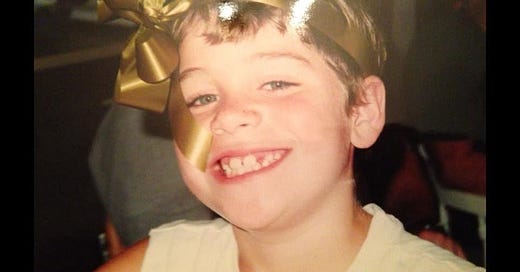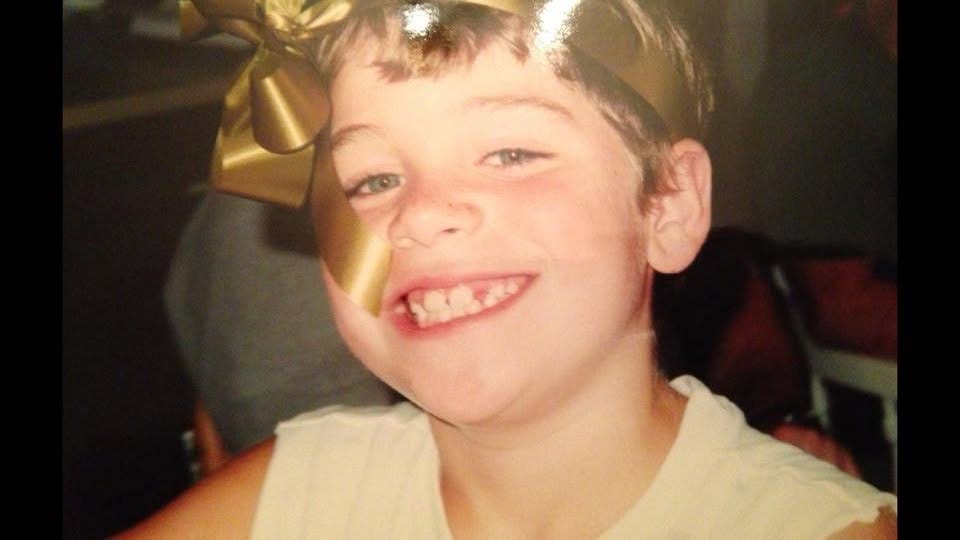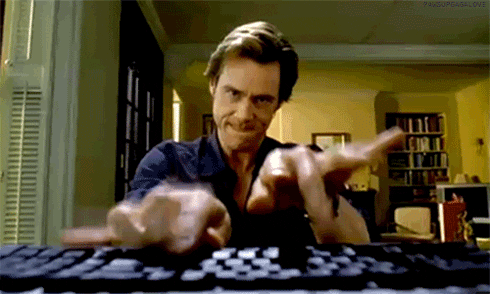The Masked Destruction Of "Male Loneliness"
38. What everyone's getting wrong about why we turn to isolation.
One of us is a med student. Another is a nurse in the intensive care unit (ICU). The third is a tech consultant. Bet you can’t guess which one I am…
Across the table from me, Andrew took a swig of his drink through a self-satisfied grin. Opposite him, and seated next to me, Colin wriggled with laughter. His elbow had bumped the table, toppling a few french fries in the process. Smirking, mostly to myself, I reflected on the joy of the present moment: three friends in their thirties catching up on life.
It’d been a while since we’d had a chance to get together.
Life gets busy, schedules conflict.
There’s an epidemic in America making headlines, and it’s been mislabeled as “male loneliness”.
While we talked, I couldn’t stop thinking about the loneliness epidemic I’d seen popping up across the internet.
The claim1 is a meteoric rise in loneliness among male-identifying Americans.
…these changes have not affected Americans equally. Men appear to have suffered a far steeper decline than women.
30 years ago, 55 % of men reported having at least six close friends.
Only 27 % of men have six or more close friends today.
15% of men have no close friendships at all, a 400% increase since 1990.
Most on Reddit say it’s because of social media2. Things like doom scrolling and rising preferences for digital connection rather than in-person interaction.
Oh, and a culture of both over-saturation and disinterest, affectionately called slothing. People like Scott Galloway, Professor at NYU’s Stern School of Business, point out things like3:
One in three men under the age of 30 has a girlfriend, while two in three women under the age of 30 have a boyfriend. You think, well, that’s mathematically impossible.
It’s not. Women are dating older for more economically and emotionally viable men.
Then, they’ll start talking about masculinity.
How it’s changed. Descriptions of “soft, unmotivated, reclusive” manboys will follow. It will be said that progressive ideologies and participation trophies are the culprit. Competency will be scrutinized. “Women want real men” they’ll say, “not dudes who sad-swipe the apps between rounds of video games”.
I’m so sick of this shit.
It’s a loneliness epidemic4, yes, but let’s look at the cause: a lack of purpose, exacerbated by underdeveloped coping skills—not poor work ethic.
Grab a shovel. We’re digging.
The core of the loneliness epidemic is not about people isolating — it’s about why they learned to cope by isolating.
Distance ebbs and flows in friendship.
Andrew, Colin, and I have known each other for more than a decade, playing geographical checkers as we’ve moved. Living in the same place is a gift we’re fully aware of. And to get together, all three of us, is still rare.
But the rule is we share openly no matter how much time has passed. No sugarcoating how we’re doing or only giving each other the sparknotes (is that even still a thing? am I supposed to call it the AI summary now?).
I’m lucky to have a handful of close friends who oscillate as seamlessly as I do between light-hearted movie quotes and heavier check-ins on things like mental health struggles.
The suicide rate among males in 2022 was approximately four times higher than the rate among females5. Males make up 50% of the population but nearly 80% of suicides.
Talking about the hard stuff took practice — it wasn’t an out-of-the-box feature. It was clumsy at first. Like really clumsy. And it was non-existent where I grew up.
So, learning how to do it was important.
The crossed wires of male loneliness are the result of social norms that reject vulnerability.
“It’s brutal”, Andrew had said about the rigor of med school while I scooted my chair in. Moving my arm to the table, I’d wedged my chin between my thumb and index finger.
While I’d been reaching for my fries, I was struck by why people share so clumsily, if at all. It’s because they half-share. For example, I might say something like the following during one of those “go around and introduce yourself” sessions… you know the kind, the ones for sparkly team-building groups.
Here are three things you should know about me:
writing makes me feel grounded.
playing music makes me feel iridescent.
snowboarding makes me feel unrestricted.
“Fabulous! Thank you, Derek!! Who would like to go next?”
I like to think I really would say something along the lines of those three, but I definitely I haven’t. I probably should, next time. But for now, I can tell you what I definitely wouldn’t say:
Pain taught me how to recognize when to let go.
My chaotic childhood without boundaries emphasized staying quiet.
Getting called a f*g hurts more as a kid when it comes from people you love.
And yet, both lists are true. In fact, they make far more sense when paired together. Vulnerability creates empathy. Because being vulnerable increases our acceptance of vulnerability from others. People isolate for a lot of reasons.
All of us, not just men.
It’s not definitive and it varies, but this is the Lack-of-Purpose Cycle I see contributing to the loneliness epidemic of Americans:
→ Unexpressed insecurity.
→ Minimal coping skills.
→ Resignation.
→ Substance use.
→ Social stagnation.
→ Financial instability.
→ Unrealized potential.
Rejection maximizes insecurity.
Vulnerability develops empathy.
Feeling seen builds a sense of connection. Without that sense of connection, having a set of healthy coping skills become critical. They strengthen the ability to resist isolation.
Choosing vulnerability in the face of insecurity is a subset of self-efficacy.
We’re taught, and expected, to be vulnerable only to the comfort level of others.
We’d ordered another round of drinks while Colin shared the latest from his world.
The more we talked the more gratitude I felt for my friends. And the more irked I became by the popular descriptions of the “Male Loneliness Epidemic”.
In every generation, people are taught how to see themselves in the world by those who’ve shaped it. This applies to all of us. The irony of growing up in Massachusetts while experiencing irrevocably damaging levels of homophobia seems sort of like growing up on a dairy farm while lactose intolerant. But I wouldn’t know, I didn’t grow up on a dairy farm.
Woven between the privilege of the Boston suburbs, there’s an abundance of judgment passed off as jokes and quips that all say “don’t be a f*g” in one way or another.
That, and “I’ll root for you unless you do better than me”.
Those seemed the widely accepted social beliefs where I grew up. Comedian Bill Burr even built a very successful career around that phenomenon.
Something I wish I’d known as a kid is that their judgement was never about sexuality, or even gender for that matter. It was about perception and acceptance. We learn to be perceived through the behavior we display.
The ability to be vulnerable is not dependent on gender.
First, we created a norm of telling people which emotions they were allowed to feel. Then, we ridiculed those same people for talking about the emotions they were not allowed to feel. We tell society that men do this and women do that—the stereotypes exist only because we impose them. We form expectations the moment we learn a child’s biological sex during pregnancy.
We teach people with penises to take up space. Because they’re to be masculine
We teach people with vaginas not to. Because they’re to be feminine.
I need to get this off my chest: behavior doesn’t have a gender. And yet, it needs to be said for those who insist it does: masculinity includes vulnerability, femininity includes bravado. Anybody can be:
aggressive
empathetic
manipulative
a good listener
overly self critical
emotionally intelligent
Dr. Gabor Mate agrees that it’s not a gender issue, it’s a cultural issue6.
Who is programmed to look after the emotional needs of others? Absorb stress so others don’t need to carry it? Be nice all the time? Take responsibility for other peoples’ feelings?
Historically, we’ve assigned that role to female-identifying members of our society.
Lack of boundaries take a biological toll. He says that people who suppress healthy anger are also suppressing their immune system, which turns against you in the form of depression and self-loathing.
So, there must be a lot of lonely women out there?! It’s not a male loneliness epidemic; it’s a female one, right? While, yes, there’s plenty of loneliness among the female-identifying population as well, it’s not of epidemic-level proportions.
But why?
We taught them how to cope with it.
How we handle insecurity is what determines our relationship with loneliness.
When Colin got up to leave, he’d exchanged hugs with Andrew and I before asking that we not let as much time pass until our next rendezvous. Even though he’d had other plans to get to, he was grateful to have been able to squeeze in some time with us.
Prioritized connection. That’s what we’d done by making time to get together.
Vulnerability rejected by insecurity destroys empathy.
Lack of connection multiplies that destruction.
It’s not uncommon to use our drug of choice to numb the pain of rejection, as our body is designed to bring us back to biological center. In fact, pleasure and pain share brain space. Literally.
The discovery of their colocation in the brain was monumental because it means the same parts of the brain that process pleasure also process pain. Dr. Anna Lembke describes this as an over-correction of dopamine7.
So, when you experience achievement, for example, your body regulates the feeling by bringing you back down. The idea is that you’ll then seek out opportunities to elevate your dopamine once more.
Gen Z reported the highest percentage of agreement with the phrase “no one really knows me well” among all respondents.
Thanks to advancements in tech, we all carry slot machines in our pocket now. Which provide quick, and consequential levels of dopamine disregulation. Signs of isolation present in different ways, but we’ve made isolation an obvious default. And, yes, especially when related to masculinity.
We don’t ask for help because we feel we shouldn’t need it.
We falsely believe we have nothing to offer.
People don’t show you who they are, they show you what they were shown. To gain acceptance, most people will show you:
who they think they need to be.
what they think you’ll respect.
how they think others act.
When we feel rejected, feelings of insecurity lead to withdrawal and isolation.
Andrew and I had resumed our conversation. I’d opted to share what I’d been thinking and invited his perspective. We’d reflected on what had been modeled to us as kids learning to navigate insecurity and vulnerability. He’d asked if any concrete examples came to mind.
I’d thought back to a specific memory from middle school. My hands had been trembling. I’d felt like the Heat Miser — the page had seemed to melt in the clutch of my sweating fingertips. If only. I remember the sterile cafeteria lighting had suddenly felt like being at the doctor’s office. My heartbeat had fully filled my ears and my tongue had been cemented to the roof of my mouth.
The yearbook superlative had been glaring up at me: Derek MacDonald, Most Musical.
The best I can describe it, I’d felt I’d been outed — as if my artistry had revealed my queerness. At least, that’s how I’d been made to feel throughout my upbringing. Remarks from a homophobic family environment, jokes from friends about the flamboyance of playing music and doing theater…the glass shattered as I realized they weren’t just meant as comments about others but as descriptions of me.
And that had been when I sentenced all artistic parts of myself to death. I set out to hide myself as best as I could. Instead of embracing my gift, I deployed a full PR crisis plan focused on becoming associated with more acceptable and safe superlatives.
In hindsight, that is the defining moment where I chose to isolate myself.
I thought back on those who’d been rooting for me — the version of me who’d been a jazz musician and theatrical lead. Our principal, Mr. F, had sought me out more than once to tell me he’d been blown away by my saxophone solos during school concerts. Teachers like Miss M had encouraged my budding creativity. I let their voices be overshadowed by the others who’d called me a f*g, flamer, or homo.
It was the sound of plates scraping that jolted me from the memory and brought me back to my conversation with Andrew.
We have an epidemic of empathy in America.
Simon Sinek did a two-part interview with Steven Bartlett where they shared openly about the role of service in building self-efficacy8. I think it’s particularly relevant here. The key takeaway was that helping others overcome a hurdle is the fastest way to overcome one ourselves.
While I’d described Simon and Steven’s message to Andrew, I was reminded of another recent conversation I’d had with a friend. One that had helped me wrap my brain around the following: while helping someone overcome a hurdle by doing it for them is an act of sympathy, being with someone while they help themselves overcome a hurdle is an act of empathy.
I’d define “help” in this context as being with someone while they help themselves overcome a hurdle, with a willingness to share support if asked.
We don’t have a male loneliness epidemic, I’d reasoned, we have an epidemic of empathy. That’s a vitally important distinction from calling it a male loneliness problem.
Teaching people to use curiosity to help others feel seen—enough so that we feel safe being seen as well—that’s the solution to the loneliness epidemic.
Feeling seen is an acceptance of vulnerability that repeats itself. The cycle develops empathy. Empathetic people, supported by close relationships grow a sense of purpose.
My friends have met me with empathy time and time again. And I strive like hell to do it for them. It’s those kinds of relationships, where hard conversations are encouraged and vulnerability is supported, that made me eventually start writing again after the years my creativity spent locked away. It’s the same reason I started playing music again, too.
Want to reduce loneliness among all people?
Make space for vulnerability—especially when insecurity says mean things to you.
onward.
-dmac
This is a free preview
Snag a free subscription to get the weekly newsletter and new podcast episodes. Or, become a paid subscriber for more long-form articles like this one.
Cox, Daniel A. “Men’s Social Circles are Shrinking.” Survey Center for American Life, Blog (June 29, 2021)
anonymous. “What do you think is the cause of male loneliness epidemic in recent years?” r/NoStupidQuestions (April 2024)
Illing, Sean. “Are men okay? Our modern masculinity problem, explained: Why is it so hard to talk about masculinity?” The Gray Area (December 16, 2024)
Murthy, Vivek H; Holt-Lunstad, Julianne; Golant, Susan. “Our Epidemic of Loneliness and Isolation: The U.S. Surgeon General’s Advisory on the Healing Effects of Social Connection and Community.” Department of Health and Human Services (2023)
U.S. Centers for Disease Control and Prevention. “Suicide Data and Statistics.” Suicide Prevention, Suicide rate disparities, Some groups have disproportionately high rates of suicide. (October 29, 2024)
Mate, Gabor. “Dr. Gabor Maté: The Shocking Link Between ADHD, Addiction, Autoimmune Diseases, & Trauma” The Mel Robbins Podcast, Episode 235 (November 21, 2024): timestamp 55:20
Lembke, Anna. “The Dopamine Expert: Doing This Once a Day Fixes Your Dopamine! What Alcohol is Really Doing to Your Brain! Your Childhood Shapes Future Addictions!” The Diary of a CEO (January 2, 2025)
Bartlett, Steven; Sinek, Simon. “Sweating the Small Stuff with Steven Bartlett: Part One.” A Bit of Optimism, Episode 91 (August 22, 2023)







I felt this article. I felt your vulnerability, empathy, and creativity. I also felt loneliness. It made me think about when I was young and the moment(s) that drove me to hide who I was in deference to who others wanted me to be. Safety was a key motivation, as was self-preservation. I appreciate you, Derek. Thanks for a thought-provoking read.
Thanks for the enjoyable read. It's the benefit of unlocking your creativity :). Loneliness is a funny thing. We feel uncomfortable when we have it. But when we're in a messy interaction (with a friend, colleague, or family member), we'd like to be alone.
I once visited a beautiful temple located between the ocean and the mountain. It's one of the tourist hotspots which is also advertised as 'the best temple to grant any of your wishes.'
As I stood there and took in the ocean view, I was tempted to make a wish: I'd like to cure my loneliness.
Then I had a second thought: What if, I can ask for the state of being care-less about loneliness? Then I'll stop bothering about it.
I was quickly brought back to reality because someone asked me to move, I was blocking them from taking a nice picture.
I made the 2nd wish instead.